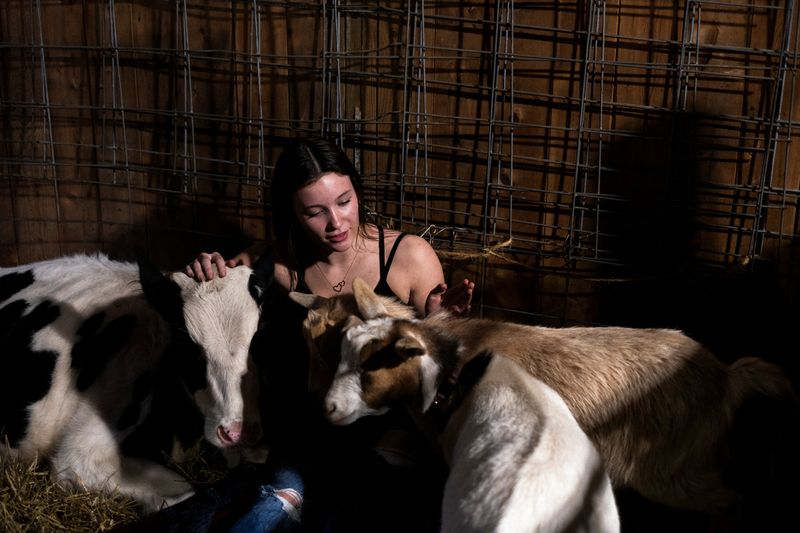The Trendy Practice of Cow Cuddling Faces a New Risk
In the heartland of America, amidst twinkling fairy lights and the gentle lowing of cattle, a new trend has emerged: cow cuddling. At Luz Farms in Illinois, Farmer Luz Klotz carefully adjusts the hair bow on Reba, a hefty heifer, preparing her for an hour-long session with teenager Joey Pachl and his girlfriend Emma. The $75 session isn’t just a whimsical adventure for the young couple; it’s a lifeline for small family farms like the Klotzes’, helping to cover feed bills and keep operations afloat.
A Growing Concern Amidst the Twinkling Lights
But as the popularity of cow cuddling spreads like wildfire on social media, a new threat looms on the horizon. The U.S. Department of Agriculture has confirmed cases of bird flu in dairy herds across nine states, casting a shadow over the practice. With scientists warning of a potentially widespread outbreak, government officials are cautioning farmers to limit outside visitors to protect both animals and humans.
Navigating Uncertain Terrain
In Michigan, where the virus has been detected in a dairy herd, emergency measures are being implemented to safeguard farms. While the restrictions don’t explicitly ban cow cuddling, officials emphasize the need to prioritize health and safety. For farmers like Henk De Vor in northern Michigan, who rely on agro-tourism for income, these measures could spell economic trouble.
The Economic Impact of Agro-tourism
Indeed, agro-tourism has become a crucial revenue stream for struggling small farms across the country. From yoga sessions with baby goats to corn mazes and sunflower fields, these experiences not only provide financial support but also connect urban dwellers with the joys of rural life. With farm incomes plummeting and crop prices slumping, the need for alternative income sources has never been greater.
A Balancing Act
Yet, amidst the allure of cow cuddling and other farm experiences, the specter of bird flu casts a shadow of uncertainty. While USDA officials stress the importance of biosecurity measures, farmers like the Klotzes remain determined to keep their doors open to visitors. For them, cow cuddling isn’t just a business—it’s a way of life, a bridge between city and country, and a source of hope in challenging times.















































